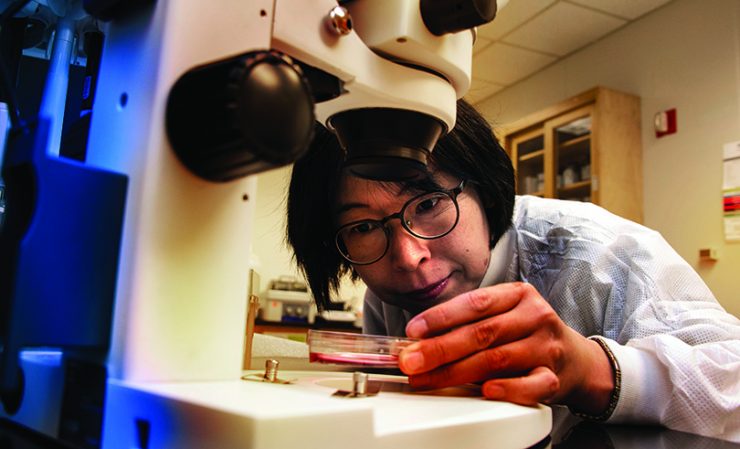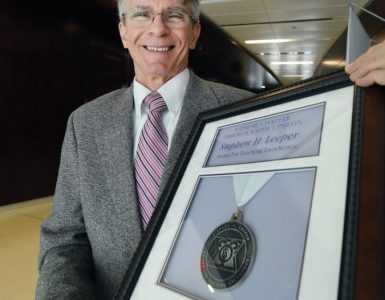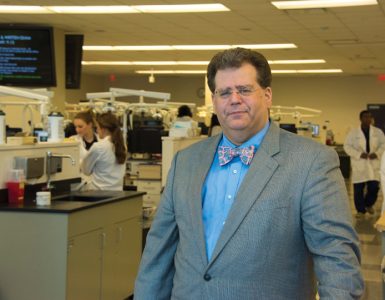A DCG researcher is drilling down on the maxim that too much of a good thing can become harmful.
Dr. Maiko Suzuki, who recently left The Ohio State University College of Dentistry faculty to join the DCG as an assistant professor of oral biology and diagnostic sciences, is studying dental fluorosis, an unintended consequence of a fluoridated water supply.
“Public water fluoridation can prevent caries, but on the other hand, excessive fluoride can cause dental fluorosis,” says Suzuki, who earned a Ph.D. and D.D.S. in her native Japan before completing postdoctoral fellowships at the Dana Farber Cancer Institute in Boston and the Forsyth Institute in Cambridge, Massachusetts. Fluorosis hypermineralizes teeth, making them discolored, overly porous and brittle as excess fluoride uptake weakens the enamel.
“My goal is keeping public fluoridation while decreasing the risk of fluorosis,” says Suzuki, noting that the condition is becoming increasingly common in Africa, China and India as these countries become more modernized.
Funded by a five-year, $1.8 million National Institutes of Health grant, she has linked the condition to Sirtuin 1, a protein encoded by the SIRT1 gene. SIRT1 deacetylates proteins, affecting gene expression that contributes to cellular regulation and helps prevent apoptosis (normal programmed cell death). Suzuki discovered that cells that overexpress Sirtuin 1 are protected from fluoride toxicity.
“We found that fluoride activates Sirtuin 1 as an adaptive response to protect cells, but eventually, the response is not enough to prevent fluoride toxicity [if the concentration in the water supply is too high],” she says. “Even wild animals in areas who drink over-fluoridated water can suffer from both dental fluorosis and bone-weakening skeletal fluorosis because of the high concentration.”
A natural polyphenol called Resveratol, found in various nuts and fruits, can increase the activity of Sirtuin 1. But Suzuki doesn’t want to have to rely on diet or supplements to protect against fluorosis. She wants to prevent the condition altogether by identifying and ensuring the ideal amount of fluoride in public water sources.
“Regions differ in their natural concentration of fluoride in the water supply,” says Suzuki, “so we want to find the balance that prevents these problems.”









